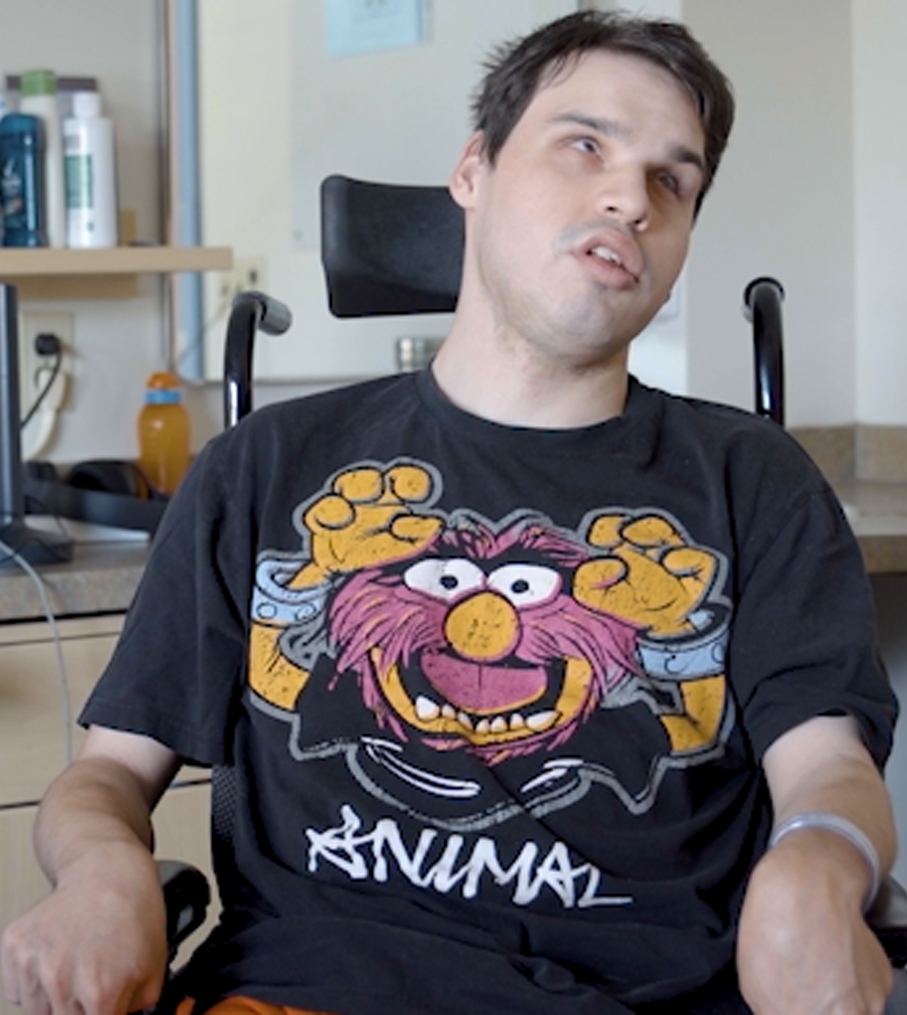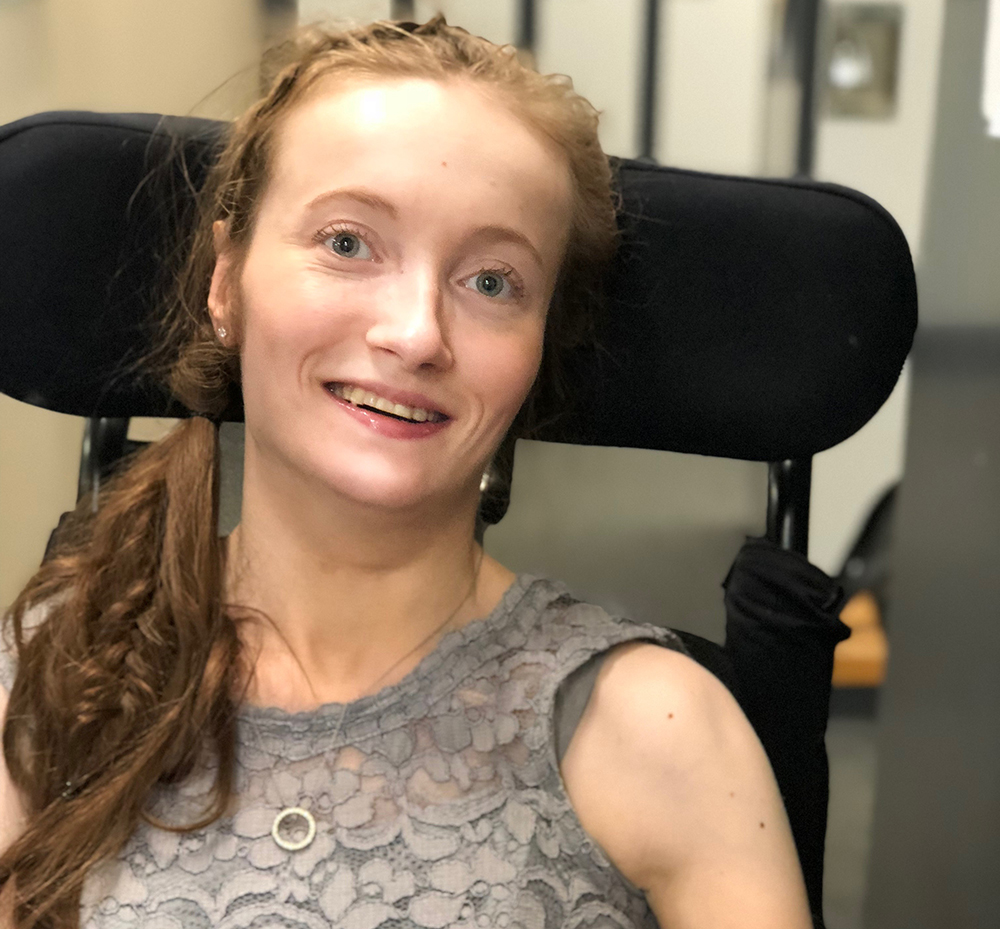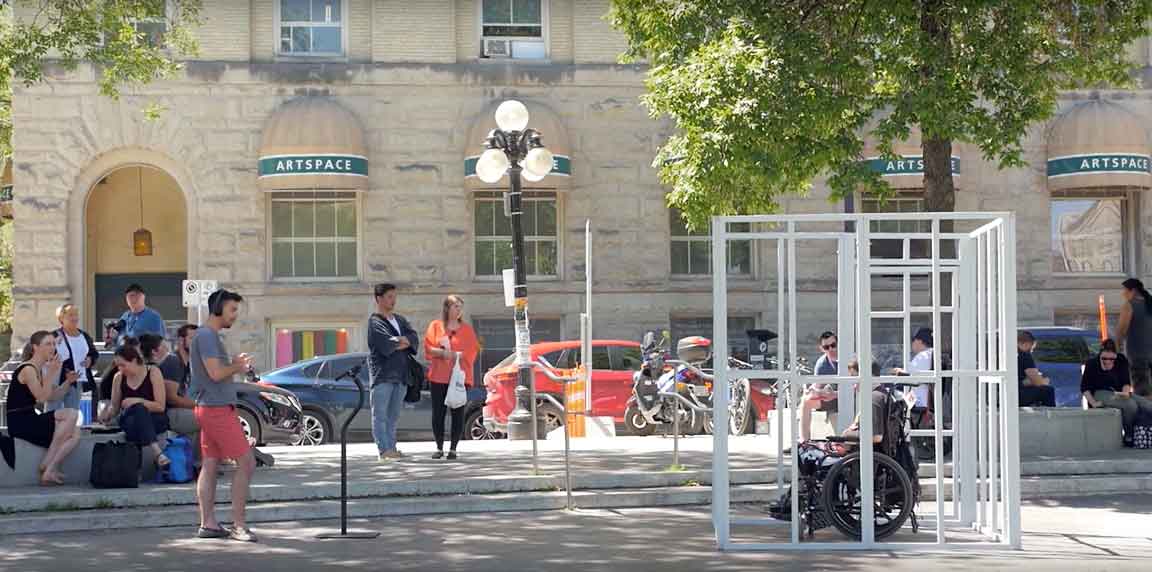July 2021 Campaign Update:
A PRECEDENT-SETTING HUMAN
RIGHTS SETTLEMENT REACHED
Two self-advocates with complex disabilities. A dedicated and passionate legal team. Countless champions for social justice. And their goliath opponent: a government unwilling to fix a broken system that caused them so much harm. These are the ingredients of a landmark human rights case. And while it may sound like the plot to a Hollywood underdog movie, it’s a real-life story and it happened right here in Manitoba.
After a five-year legal battle (2016-2021), Tyson Sylvester and Amelia Hampton reached a precedent-setting human rights settlement with the Government of Manitoba and the Winnipeg Regional Health Authority.
For the first time, the Government of Manitoba admitted there were gaps in services for adults with complex disability-related needs. As part of the settlement, the Government of Manitoba will launch a pilot program to offer services to 30 adults with complex disabilities and study barriers in this system of care. This participatory-based research study will include the perspectives of the disabilities community.
The new pilot program will be launched in partnership between the province and the Winnipeg Regional Health Authority. It will be guided by a Steering Committee comprised of at least one-third people with lived experience. The pilot program will test a new model of service delivery; one that is person-centred with a focus on timely service coordination and navigation for adults with complex disability-related needs. And while the details of the new program have yet to be revealed, we do know the Government of Manitoba has committed to making “best efforts” to implement any recommendations resulting from the pilot program and the research study.
After a hard-fought legal battle, this pilot program serves as a victory for Tyson and Amelia, for the 30 participants who will benefit from the new program, and— hopefully—for thousands of Manitobans with complex disabilities.
Of course, one victory does not mean the battle for equality is over. Challenging systemic barriers for persons with disabilities is a never-ending fight. And it takes a toll. We have all experienced frustration and exhaustion from the daily fight to defend our rights. But a victory like Tyson’s and Amelia’s renews our strength. And, importantly, it signals to our next goliath opponent that we are, indeed, a force to be reckoned with.
Click <https://news.gov.mb.ca/news/index.html?item=51550> to read the Government of Manitoba news release.
High school graduation is usually celebrated as a launch into the real world.
But when your support services are ceremonially stripped from you as you age out of the school system, you can’t exactly go out and make your mark.
Instead, adults with physical disabilities lose custom technology that was tailored for their use because it’s technically the property of the school. They no longer qualify for any government-supported rehabilitation, respite outside the home, or any assistance to go to work, school or engage in the community.
They graduate to a patchwork of home care services maxed out at 55 hours a week – forcing them to make decisions between laundry and a warm meal, instead of seeking a job or further education.
Stuck at home, these individuals cling to the hope that they’ll get to contribute and interact with the community in a meaningful way. But the only way for them to do that is if the systems that won’t support them change.
A number of individuals with physical disabilities have filed a human rights complaint against the province and Winnipeg Regional Health Authority. Forgotten but not defeated, they’re fighting the systems that keep them out of the community, and locked out of life.
They’ll only settle for systemic change, so they only win if the whole community wins. Which is exactly what happens when we amplify their voices and help open up the world to them.

The maximum of 55 hours of home care for adults with physical disabilities sometimes means having to make routine choices between two basic needs.

There are two options upon graduation: live at home and receive a maximum of 55 hours of home care, depending on your family for any additional help, or live in a senior care home.

To receive home care, you are bound to the home, and there are no longer government services to assist you in attending school or work.
FORGOTTEN, BUT FIGHTING
Hear stories from some individuals who are facing these systemic issues and fighting against them.



About the Campaign
Young adults with significant physical disabilities in Manitoba are being locked out by failures in the system. Locked out of their communities. Locked out of their dreams. Locked out of life.
Graduating from high school and turning 18 years old are milestones in a young person’s life. For people with significant physical disabilities, these milestones are bittersweet: just when they are ready to explore the world of adulthood, they lose comprehensive support services and become stuck at home.
Before graduating from high school or turning 18, young people with significant physical disabilities enjoy a suite of supports that foster their social inclusion. These supports make it possible to hang out with friends, volunteer, go to school, and participate in social events.
After graduating from high school or turning 18, these young people are locked out of these services. They abruptly lose access to equipment (such as screen readers and custom orthopaedics), one-on-one support, occupational therapy, and transportation. Instead, a “one-size-fits-all” approach provides a maximum of 55 hours of home care. Home care is limited to things like laundry, warming up food, and grooming. The system does not prepare or guide young people through these changes.
Locked Out of Life is a campaign to foster public awareness and to advocate for young adults with significant physical disabilities in Manitoba, so they can continue to access services to meet their needs to live safely and sustainably in their homes, schools, and communities. No Manitoban should age out of supports that have proven to work for them. No Manitoban should be locked out of their communities and dreams. No one should be locked out of life.
HERE’S WHAT YOU CAN DO
Help us create systemic change for adults with physical disabilities
SHARE
Share the video or one of the individuals’ stories on social media, using the hashtag #lockedoutoflife. Help us spread the knowledge of the systemic discrimination taking place.
ACT NOWSIGN
Sign the petition showing your support for adults with physical disabilities that are being prevented from participating in the community.
ACT NOWTAKE A STAND
Fill out a templated letter to government to put the pressure on those who can affect change.
ACT NOWDONATE
You can help the Cerebral Palsy Association of Manitoba fund its support for the legal cases for these individuals who are challenging the discrimination they face everyday.
ACT NOW


